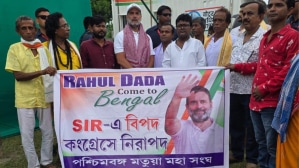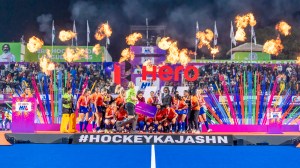Stay updated with the latest - Click here to follow us on Instagram
Confidentiality clause denies fairness to users challenging govt blocking orders: Twitter in HC
Twitter has questioned the Centre’s blocking of tweets, some of them “innocuous”, saying the posts did not violate Section 69A of Information Technology Act.
 Twitter has also contended that blocking of information from public access without first issuing notice to the users was a violation of the freedom of speech.(file)
Twitter has also contended that blocking of information from public access without first issuing notice to the users was a violation of the freedom of speech.(file)The confidentiality clause in the Centre’s rules for blocking Twitter accounts and tweets — which disallows information to users on why their accounts were blocked — is “unreasonable” and denies a fair opportunity to those challenging the blocking orders, the social media platform told the Karnataka HC on Monday.
The Bench of Justice Krishna Dixit was hearing a petition moved by Twitter against orders issued by the Ministry of Electronic and Information Technology to block 39 accounts in 2021.
Twitter has questioned the Centre’s blocking of tweets, some of them “innocuous”, saying the posts did not violate Section 69A of Information Technology Act.
It has also contended that blocking of information from public access without first issuing notice to the users was a violation of the freedom of speech.
In its counter so far, the Centre has argued that Twitter being a foreign platform cannot seek freedom of speech and other fundamental rights available to Indian citizens for the users of the platform.
The Ministry’s blocking order had been issued under Rule 16 of the Information Technology (Procedures and Safeguards for Blocking of Access to Information by Public) Rules 2009, which requires strict confidentiality regarding all blocking requests.
On Monday, appearing for Twitter, senior advocate Ashok Haranahalli told the court that Section 69A of the IT Act, however, requires for reasons to be recorded in writing, meaning “the reasons must be communicated to the aggrieved”.
“The confidentiality in the rules applies to all but the aggrieved,”’Haranahalli submitted, adding “if the confidentiality clause in the blocking rules is all pervasive then it becomes unreasonable because the aggrieved person cannot challenge it at all”.
This prompted Justice Dixit to ask: “How can the aggrieved seek review if they have no access to the decision to block the account?”
Arguing that blocking should be tweet-specific, barring exceptional circumstances such as the user being a repeat offender, the Twitter counsel said blocking of entire accounts over a single tweet went against the doctrine of proportionality. He told the court that countries such as Australia follow the norm that procedural fairness is not necessary if the material is found to be abhorrent by a platform itself.
The High Court, meanwhile, rejected an application for impleading filed on behalf of senior advocate Sanjay Hegde suggesting that Twitter had blocked his account in the same manner as the government has sought using the blocking rules.
The court adjourned the hearing to a later date for the Centre and MEITY to present its arguments.







